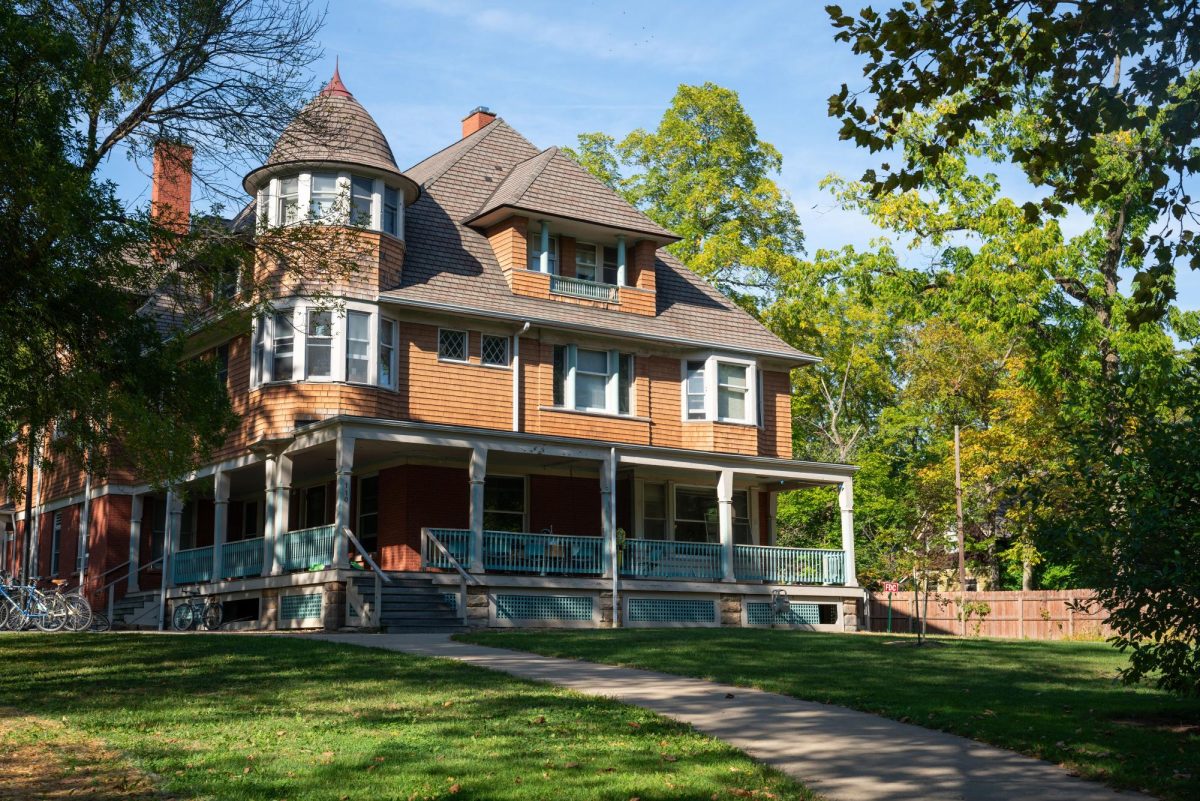For the last 10 years, students who join the Oberlin Student Cooperative Association have seen a reduction in their financial aid package in comparison to students in Oberlin College housiing and dining. This fall, student members of a co-op no longer see these reductions, following a renegotiation last spring between the two entities. Instead, they received their financial aid package in full, in addition to compensation for hours worked in their co-op which will be delivered at the end of the semester.
This academic year, OSCA introduced the co-op credit system, in which members of OSCA are compensated for the labor they do to keep their co-ops operational. In the past, students simply paid a lower bill for OSCA than for Oberlin’s college housing and dining plans. Now, while all OSCA members have to pay the same cost upfront as they would to Oberlin College, they will instead receive a check at the end of the semester as recognition of the work the students put into the co-ops. This change allows students who previously had their financial aid reduced to now receive the full financial aid package that they would have through College dining and housing, while also enjoying the reduced cost of OSCA.
“If you’re a [student on financial aid] and you were concerned about losing any money because you joined OSCA, now that’s not a concern,” Oberlin Director of Financial Aid Michele Kosboth explained. “Because OSCA changed their pricing, … we don’t have to make any adjustments because their costs match what we would use if the student was living and dining on campus. So there’s really no change to a student’s financial aid anymore because they choose OSCA, which is great.”
This change came about last spring, and was formalized in May as an amendment to the Memorandum of Understanding between the College and OSCA. This change also comes as a larger attempt by OSCA to expand membership and grow the organization.
“I think the tangible benefits of this credit are obvious — it’s that you get a check to your name, which accounts for doing your shifts,” OSCA President and College fourth-year Ani Zakarian said. “I also think there are much larger cultural benefits that will happen for the organization. I think a shift to a member-owned model is really exciting for OSCA. … I think it’s something that ideally would have a lasting sort of shift in the way that people treat their shifts, [the way], people treat their relationship to their co-op, [and the way] people treat their relationship to each other in their co-op.”
Zakarian also emphasized the importance of this change in financial aid in making OSCA more accessible to Oberlin students.
“It’s safe to say that OSCA is wealthier than the rest of campus,” Zakarian said. “There’s a concentration of wealth in OSCA that … was not always the case. OSCA was created as a financial alternative for high-need students. … [But] up until recently, there really was no financial incentive for a high-need student to join OSCA, especially with the policy of reducing financial aid. Now that that’s gone, there are reasons for a high-need student to join OSCA that are purely economic.”
Zakarian felt that it might take several years to fully see the benefits of this change for OSCA, but expressed excitement for the possibility of making the organization more accessible to a broader array of Oberlin students.
The College began to reduce students’ financial aid packages based around the savings that they would incur from OSCA in 2014, in response to new federal financial aid legislation, OSCA –OC Liaison and fourth-year Elijah Freiman explained.
“The thinking was essentially that because cost of attendance had gone down as a result of membership in OSCA, Oberlin College’s obligations in turn were reduced correspondingly,” Freiman said.
Freiman explained that OSCA was able to work with the College to develop the co-op credit program due to how the rent contract negotiated between OSCA and the College in 2020 changed the system in which OSCA pays rent to the College. Prior to 2020, this took the form of a flat fee, however that changed with the new rent contract to a revenue neutral model. Through the revenue neutral model, OSCA pays the College the operating revenue that Oberlin would receive if those students were paying for on-campus housing and dining. Operating revenue goes to funding academic programs, administrative costs, athletics, and other operations of the College.
“What we were basically presenting was this understanding that in moving to this revenue neutral model, we had missed out on this one way that it intersected with financial aid policy,” Freiman said. “What had happened was the pendulum had actually swung in the other direction, in which OSCA members were now the ones subsidizing — particularly OSCA members on financial aid — instead of the ones being subsidized.”
Both Zakarian and Freiman expressed optimism that this agreement with the College boded well for the future of OSCA’s relations with Oberlin College.
“I think that there has been a narrative that the College is interested in OSCA’s dissolution, that they see an Oberlin without OSCA in the future,” Freiman said. “That’s not the sense that I get. … The College has shown us that they’re willing to work with us when it comes to safeguarding the principles of the relationship between OSCA and the College.”









